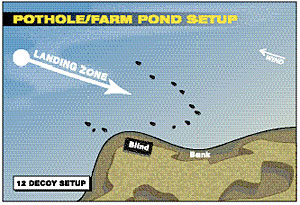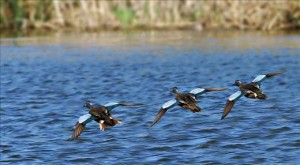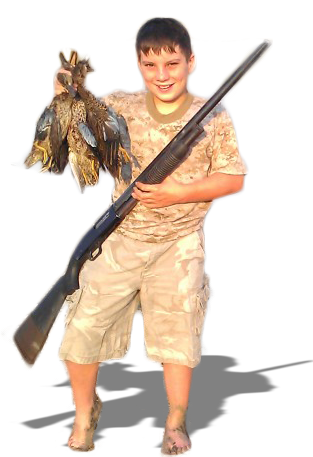The Beginners Guide to Duck Hunting
If you are looking for your first guided duck hunt or would just like to learn more about hunting ducks in North Texas, this is the place for you.
Maybe you tried to book a hunt and were overwhelmed with the gear you would need to bring, and the knowledge you were expected to have? Maybe you tried to gain some knowledge to hunt yourself on some these Texas Online Hunting Forums and were blasted for asking a simple question and trying to learn a thing or two? No matter the case, we understand that it can be intimidating and/or to overwhelming to dive right in and begin hunting for someone new to the sport.
This page is to answer some common questions that we get, about both what our hunts are like as well as some common tips when hunting on your own. Feel free to leave us some of your feedback as well right here on the page!
Equipment and Environment
What equipment do I need to bring?
In most cases you will only need your shotgun, shells, and your hunting license. However, there are some cases that we would have you bring your waders if you have them. We tailor all of our hunts to your wants and needs, so if you’re a beginner or a seasoned pro we can ensure you a great hunt.
Where will we hunt?
We hunt primarily just south of the Metroplex, but are willing to travel if need be to ensure you a quality hunt. Most of our hunts will take place in Dallas, Tarrant, Ellis, Navarro, and Hill counties but some may venture out to Henderson, Kaufman, or Van Zandt for special requests.
Do I need my own calls?
Not at all, we will do everything short of shooting for you. However, if you would like to bring your calls feel free!
What kind of ducks will we shoot?
This will vary depending on the time of year we are hunting and the type of habitat we hunt that day. A common day’s limit can consist of a variety of species including gadwall, widgeon, blue and green wing teal, mallards, wood ducks, pintail, shovelers, ring necks, redheads, canvasbacks, and scaup. We can target specific species if requested, please see our specialty hunts for more details.
Want to know a bit more about slang names for ducks? See the Texas Outdoor Exchange Duck Slang Dictionary
What kind of gun do I need?
Most waterfowlers will use a 12 gauge shotgun, but a 20 gauge can be used as well. Either a pump action, or semi automatic will work just fine. Be sure to have your plug in, so that your gun will not hold more than 3 shells at a time. This is a state law. If you do not have your own gun, we would be happy to supply one for you to use for the day. Make sure that you have steel shot as well, lead shot is illegal when hunting migratory birds.
Do you offer lodging?
We do not book any lodging, but would be happy to recommend some of our affiliates near your hunting location at discounted rates.
What time do you hunt?
We will meet an hour to two hours before daylight and begin hunting at legal shooting light, which is 30 minutes before sunlight. We will hunt until our bag limits are full, or you are ready to call the hunt for the day. If hunting for a combo of dove or goose, we will end our morning’s duck hunt by 11:00 so that we can prepare for our afternoon dove/goose hunt.
Duck Hunting Common Questions
Before venturing out on your own to hunt ducks you should go on a guided hunt, or hunt with a friend that has some experience to show you the ropes. It’s not rocket science by any means, but this will help you to be successful and enjoy yourself rather than having a slow hunt on a cold winter day and giving up entirely. Make sure to read up on your hunting regulations and duck identification. Our Texas Game Wardens to a great job of protecting our wildlife and you wouldn’t want to make any costly mistakes by simply not doing your homework.
How many decoys should I use?
There is no specific formula that is guaranteed to work when decoying ducks. However, there some proven methods that I can share to give an edge or a place to start. During early season when ducks are first arriving, you can use a larger decoy spread to attract these larger groups. Later in the season, ducks have begin to pair up and can be extremely wary due to hunting pressure. At this time, use only afew decoys, a dozen should do well in most cases. If hunting a larger body of water, use bigger decoys and more of them for better visibility.
How should I set up my decoys?
You want to set your decoys to where they are visible to the ducks overhead, and in a natural position. Ducks will naturally land  into the wind, so make sure that you have a place where the ducks are able to land upwind of your spread, and within shooting distance. A lot of hunters like to use a “J” or “V” pattern, to let the ducks try to land in the opening. Others will put their decoys in two groups to leave a “landing zone” right in the middle. On smaller ponds, you can use decoys to block areas where the ducks could land out of range, so that they will land in the open area closer to your blind. I personally like to match the hatch so to speak and imitate what I saw the ducks doing naturally the day before when scouting. If something isn’t working, don’t spend all morning watching it not work, get up and move them around to try something different. You will figure out what they want that morning.
into the wind, so make sure that you have a place where the ducks are able to land upwind of your spread, and within shooting distance. A lot of hunters like to use a “J” or “V” pattern, to let the ducks try to land in the opening. Others will put their decoys in two groups to leave a “landing zone” right in the middle. On smaller ponds, you can use decoys to block areas where the ducks could land out of range, so that they will land in the open area closer to your blind. I personally like to match the hatch so to speak and imitate what I saw the ducks doing naturally the day before when scouting. If something isn’t working, don’t spend all morning watching it not work, get up and move them around to try something different. You will figure out what they want that morning.
Where should I hide?

Different habitats will call for different concealment. If you are hunting a heavily wooded area, you can use your surroundings to brush in an area to hide in. If the area is flat, and open, layout blinds will be the key. The main thing to remember here is to become part of the natural terrain. You can be completely hidden, but if you are hiding behind materials that are not native to that area, the ducks will pick you out. Also, there can never be enough brush. If you think you have enough, double it and you may be ok. This is one area you don’t want to skimp on, as it can make or break a hunt.
Where should I hunt?
When looking for a place to hunt, scouting is key. Any successful waterfowler will tell you they spend far more time scouting than hunting. This may mean driving until sundown looking for a place holding ducks for the next morning’s hunt. You want to be where the ducks want to be by any means necessary. If you don’t have that luxury, look for shallow places with lots of vegetation, or freshly flooded areas. That will give the best bet of a good hunt when going in blind. Texas Parks and Wildlife Department and The Army Corps of Engineers offer public hunting areas. You can find information at their websites.
What gear do I need?
You can have a great hunt with your shotgun, duck call, and a dozen decoys if you want. There are many other items that a duck hunter will purchase in pursuit of waterfowl, many can increase your chances at decoying ducks but none are completely necessary.
Are motion decoys effective in Texas?
Some can be, and some can ruin your hunt depending on the type of year. Spinning wing decoys work great during early teal season, and could be effective during the early season as well. Any later than that, leave them at home as they will flare more birds than they will attract.
Decoys that put motion on the water are key to being successful. If a group of ducks fly over head and see your decoys, yet not a single ripple on the water, it throws up a red flag. Many hunters will use a jerk string, quiver decoy, swimmer decoy, or some kind of water pump to give the water some movement.
